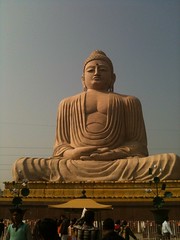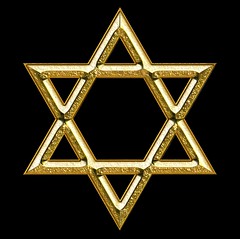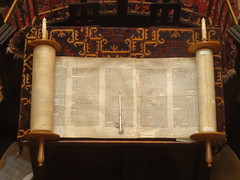| 10710030992 | Caste System | a class structure that is determined by birth. Loosely, it means that in some societies, if your parents are poor, you're going to be poor, too. Same goes for being rich |  | 0 |
| 10710030993 | Patriarchy | A male dominated society |  | 1 |
| 10710030994 | Matriarchal | A female dominated society |  | 2 |
| 10710030995 | Mandate of Heaven | an ancient Chinese belief and philosophical idea that tiān (heaven) granted emperors the right to rule based on their ability to govern well and fairly. |  | 3 |
| 10710030996 | Silk Road | an ancient network of trade and cultural transmission routes that were central to cultural interaction through regions of the Asian continent connecting the West and East by merchants, pilgrims, monks, soldiers, nomads, and urban dwellers from China and India to the Mediterranean Sea |  | 4 |
| 10710030997 | Social Heirarchy | how individuals and groups are arranged in a relatively linear ladder |  | 5 |
| 10710030998 | Reincarnation | the rebirth of a soul in a new body. | 6 | |
| 10710030999 | Assimilation | The process by which a person or persons acquire the social and psychological characteristics of a group |  | 7 |
| 10710031000 | Monotheistic | The belief in only one god |  | 8 |
| 10710031001 | Eightfold Path | the path to nirvana, comprising eight aspects in which an aspirant must become practiced: right views, intention, speech, action, livelihood, effort, mindfulness, and concentration. |  | 9 |
| 10710031002 | Zoroanstrianism | one of the world's oldest monotheistic religions. It was founded by the Prophet Zoroaster in ancient Iran approximately 3500 years ago. |  | 10 |
| 10710031003 | Polytheistic | The belief in many gods |  | 11 |
| 10710031004 | Legalism | strict adherence, or the principle of strict adherence, to law or prescription, especially to the letter rather than the spirit. |  | 12 |
| 10710031005 | Confucianism | a system of philosophical and ethical teachings founded by Confucius and developed by Mencius. |  | 13 |
| 10710031006 | Buddhism | is a nontheistic religion or philosophy (Sanskrit: dharma; Pali: धम्म dhamma) that encompasses a variety of traditions, beliefs and spiritual practices largely based on teachings attributed to Gautama Buddha, commonly known as the Buddha ("the awakened one"). |  | 14 |
| 10710031007 | Judaism | an ancient monotheistic religion, with the Torah as its foundational text (part of the larger text known as the Tanakh or Hebrew Bible), and supplemental oral tradition represented by later texts such as the Midrash and the Talmud. |  | 15 |
| 10710031008 | Christianity | the religion based on the person and teachings of Jesus of Nazareth, or its beliefs and practices. |  | 16 |
| 10710031009 | Daoism | a philosophical, ethical or religious tradition of Chinese origin, or faith of Chinese exemplification, that emphasizes living in harmony with the Tao. |  | 17 |
| 10710031010 | Han Dynasty | an empire in ancient China, that lasted from 206 b.c.e- 24 c.e. |  | 18 |
| 10710031011 | Persia | an empire located in modern day Iran but stretched as far as Egypt and Iraq. |  | 19 |
| 10710031012 | Gupta | an empire located in northern India that lasted from 320-550 c.e. |  | 20 |
| 10710031013 | Roman empire | located in modern day Italy but expanded to outlying countries throughout its reign, it lasted from 201 b.c.e- 476 c.e. |  | 21 |
| 10710031014 | Empire | an extensive group of states or countries under a single supreme authority. |  | 22 |
| 10710031015 | Hebrew Scriptures | Torah, Old Testament |  | 23 |
| 10710031016 | Hinduism | A religion and philosophy developed in ancient India, characterized by a belief in reincarnation and a supreme being who takes many forms |  | 24 |
| 10710031017 | Mauryan Empire | (321-185 BCE) This was the first centralized empire of India whose founder was Chandragupta Maurya. |  | 25 |
| 10710031018 | Ashoka | Leader of the Mauryan dynasty of India who conquered most of India but eventually gave up violence and converted to Buddhism. |  | 26 |
| 10710031019 | Siddhartha Gautama (The Buddha) | Means "Enlightened One." He is said to have renounced his worldly possessions and taught of a way to overcome suffering. |  | 27 |
| 10710031020 | Emperor Constantine | Founded Constantinople; best known for being the first Christian Roman Emperor; issued the Edit of Milan in 313, granting religious toleration throughout the empire. |  | 28 |
| 10710031021 | Gupta Empire | (320-550 CE) The decentralized empire that emerged after the Mauryan Empire, and whose founder is Chandra Gupta. |  | 29 |
| 10710031022 | Aqueduct | A structure that carries water over long distances |  | 30 |
| 10710031023 | Colosseum | A large stadium in ancient Rome where athletic events took place |  | 31 |
| 10710031024 | Indian Ocean Maritime System | The Indian Ocean Maritime had been made possible by transactions between the Mediterranean Basin and the Indian Ocean Basin. The Indian Ocean Maritime allowed for cheaper transportation and the increased abundance of products that could be shipped. |  | 32 |
| 10710031025 | Trans-Saharan Trade Route | gold-salt trade; linked North and West Africa; across Sahara Desert; spread Islam; land trade |  | 33 |
| 10710031026 | filial piety | In Confucian thought, one of the virtues to be cultivated, a love and respect for one's parents and ancestors. |  | 34 |
| 10710031027 | ancestor veneration | Veneration of the dead or ancestor reverence is based on the beliefs that the dead have a continued existence, and may possess the ability to influence the fortune of the living, the worship of deceased ancestors | 35 | |
| 10710031028 | Persian Empire | Greatest empire in the world up to 500 BCE. Spoke an Indo-European language. A multi-ethnic and multi-religious empire. Fell to Alexander the Great. |  | 36 |
| 10710031029 | Qin Dynasty | the Chinese dynasty (from 246 BC to 206 BC) that established the first centralized imperial government and built much of the Great Wall |  | 37 |
| 10710031030 | Hellenistic | Of or influenced by the Greek Empire. A type of culture typically referred to after the conquests of Alexander the Great. | 38 | |
| 10710031031 | Persepolis | A complex of palaces, reception halls, and treasury buildings erected by the Persian kings Darius I and Xerxes in the Persian homeland. It is believed that the New Year's festival was celebrated here, as well as the coronations, weddings, and funerals of the Persian kings, who were buried in cliff-tombs nearby. |  | 39 |
| 10710031032 | Carthage | City located in present-day Tunisia, founded by Phoenicians ca. 800 B.C.E. It became a major commercial center and naval power in the western Mediterranean until defeated by the expanding Roman Republic in the third century B.C.E. |  | 40 |
| 10710031033 | Constantinople | A large and wealthy city that was the imperial capital of the Byzantine empire and later the Ottoman empire, now known as Istanbul |  | 41 |
| 10710031034 | Qanat System | a traditional system of gravity-fed irrigation that uses gently sloping tunnels to capture groundwater and direct it to low-lying fields |  | 42 |
| 10710031035 | Jesus of Nazareth | a teacher and prophet born in Bethlehem and active in Nazareth; his life and sermons form the basis for Christianity. |  | 43 |
| 10710031036 | Paul of Tarsus | A Pharisaic Jew who persecuted the Early Christian community; later, he had an experience of the Risen Christ and became the "Apostle to the Gentiles" writing numerous letters to the Christian communities. |  | 44 |
AP World History Unit (1) Flashcards
Primary tabs
Need Help?
We hope your visit has been a productive one. If you're having any problems, or would like to give some feedback, we'd love to hear from you.
For general help, questions, and suggestions, try our dedicated support forums.
If you need to contact the Course-Notes.Org web experience team, please use our contact form.
Need Notes?
While we strive to provide the most comprehensive notes for as many high school textbooks as possible, there are certainly going to be some that we miss. Drop us a note and let us know which textbooks you need. Be sure to include which edition of the textbook you are using! If we see enough demand, we'll do whatever we can to get those notes up on the site for you!

